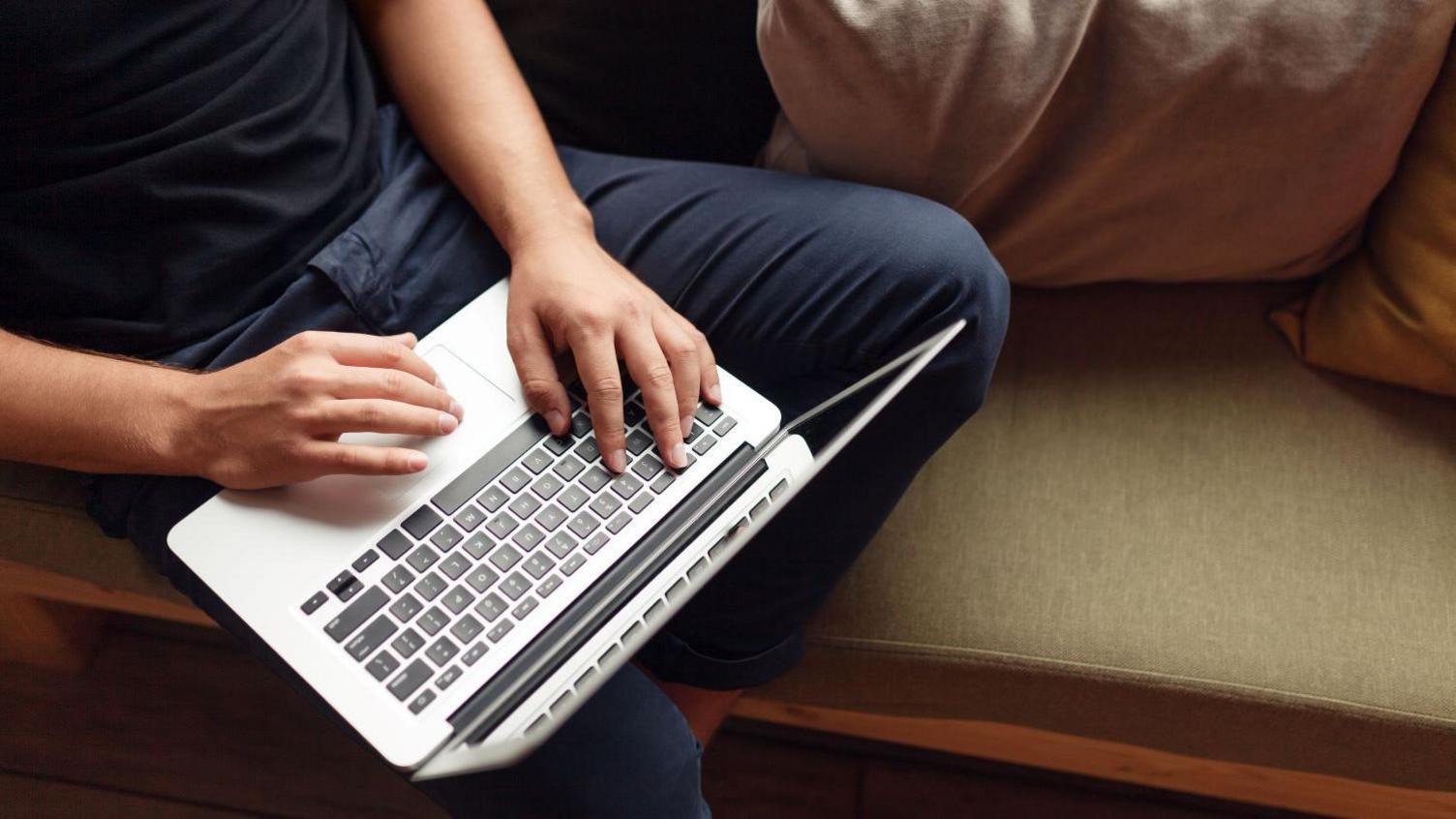Around 6,000 porn sites start checking ages in UK

- Published
Around 6,000 sites allowing porn in the UK will start checking if users are over 18 on Friday, according to the media regulator Ofcom.
Dame Melanie Dawes, its chief executive, told the BBC "we are starting to see not just words but action from the technology industry" to improve child safety online.
She told BBC Radio Four's Today programme that "no other country had pulled off" such measures, nor gained commitments from so many platforms, including Elon Musk's X, around age verification.
But the BBC understands at least one major porn site operating in the UK does not seem to be requiring age checks as of Friday morning.
And experts remain sceptical about the effectiveness of Ofcom's age checks and how easy it may be for people, particularly children, to circumvent them.
Ofcom said on Thursday, external that more platforms, including Discord, X (formerly Twitter), social media app Bluesky and dating app Grindr, had agreed to bring in age checks.
The regulator had already received commitments from sites such as Pornhub - the UK's most visited porn website - and social media platform Reddit.
Requirements to verify age on Reddit appear to have taken effect across a wide range of its individual, topic-based subreddits, such as those dedicated to discussions about alcohol.
The Technology Secretary Peter Kyle told BBC Newsbeat the UK's new rules apply "common sense" to regulating the internet.
"We're very used to proving our age in lots of different areas of life at the moment, and it makes sense that we do so more assertively when it comes to online activity," he said.
"I think people actually think it's pretty weird that you are age checked when you want to buy a can of Monster, but you're not age checked when you access certain material online."
The UK's new online safety rules, explained:
Chris Sherwood, chief executive of children's charity the NSPCC, said Friday's new rules mean services "can no longer evade their duty for protecting children".
He added it was "high time for tech companies to step up" and prevent children encountering harmful content on their platforms.
"Children, and their parents, must not solely bear the responsibility of keeping themselves safe online," he said.
For Prof Elena Martellozzo, professor of child sexual exploitation and abuse research at the University of Edinburgh, the rules send a message to the tech industry that "child safety and child protection are not optional".
"Failing to act is no longer excusable under the guise of technical complexity or business models," she added.
'More to be done'
Not all believe Ofcom's rules go far enough to protect children as intended, however.
The Molly Rose Foundation, a charity founded by the family of Molly Russell - who took her own life at the age of 14 after seeing harmful content online - has said stronger legislation is needed to better protect children.
Andy Burrows, the charity's chief executive, said Ofcom has prioritised "the business needs of big tech over children's safety", with thresholds for requirements and estimated costs for changes falling short of what is needed to force the largest companies to take action.
Derek Ray-Hill, interim head of the Internet Watch Foundation, meanwhile welcomed the new rules for sites allowing porn but said "there is still more to be done".
He said platform operators should be considering how to make them safer by design and "doing everything they can to make sure we are building an internet that is safe for everyone".
Others have have expressed concern that people may seek ways to circumvent so-called age gates on porn sites - potentially pushing them towards less regulated spaces with more dangerous and explicit sexual material.
"A lot of the porn out there is incredibly derogative to women and there's a lot of violence and aggression," said Reed Amber Thomas-Litman, a sex worker and educator.
"Of course people, not just kids or young adults, are going to mimic that."
She told Newsbeat providing information about porn as part of the sex education curriculum could "help young adults understand it is a fantasy, it is not reality".
Age checks could also negatively impact people who do not feel comfortable sharing their identity, such as LGBTQ+ people, she said.
"If you have to hand over your ID, that means you have no protection where that information is going," she said.
"It could go to third party companies and who knows what they'll do with that information."
Many of the sites which operate age verification services say they do not retain ID, videos or images required for them to carry out age checks for any longer than necessary.
Get in touch
Have you been affected by issues raised in this story? Share your experiences

Sign up for our Tech Decoded newsletter to follow the world's top tech stories and trends. Outside the UK? Sign up here.